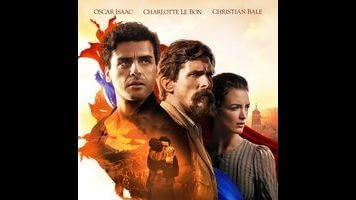The director of Hotel Rwanda plows through the Armenian genocide in The Promise

Among the many virtues of James Gray’s The Lost City Of Z is its sense of proportion, which turns a decades-spanning historical epic into a pas de deux between vision and madness. Unfortunately, most recent historical epics have been more on the order of Terry George’s The Promise: messes of soap and cheese. Here at last is a film that tackles the Armenian genocide by way of a flimsy love triangle and an international cast (it really captures the diversity of the Armenian people), straining so hard to show its good intentions that it doesn’t bother to be directed. What does a movie that can’t even mount a competent horse chase—despite repeated attempts—have to say about the murder of 1.5 million people? At least George can rest easy knowing that his film is less bungled than Bitter Harvest, the February release that turned the Holodomor into the stuff of schmaltz. Up next, presumably, is Nicholas Sparks’ Auschwitz.
Doing his best impression of Omar Sharif, Oscar Isaac stars as Mikael Boghosian, a village apothecary who agrees to marry doe-eyed local girl Maral (Angela Sarafyan) in order to use her dowry to finance his dream of becoming a doctor. (Pity poor Maral, as no two members of the cast seem to agree on how to pronounce her name.) Arriving in Constantinople, the capital of the Ottoman Empire, Mikael moves in with his wealthy uncle and enrolls in medical school, but soon develops a crush on Ana (Charlotte Le Bon), the modern young woman who tutors his uncle’s children. But it’s 1914, and the Ottoman Empire is about to enter World War I as an ally of Germany and Austria-Hungary and within months will begin a strategic elimination of its large Armenian minority. As if to make matters worse, Ana has an American boyfriend, Chris Myers (Christian Bale), the Associated Press’ bureau chief of Armenian genocide exposition.
George previously co-wrote and directed Hotel Rwanda, but his latest attempt at dramatizing a historic atrocity through a handful of good deeds badly lacks a central presence like the one that Don Cheadle brought to the earlier film. Isaac, who excels at playing bastards, labors to make his character as nonthreatening and dignified as possible and ends up being upstaged by Bale, who somehow gives one of his better latter-day performances in a role that mostly asks for him to be angry about whatever facts he is stating out loud for the benefit of the audience. Some of The Promise’s one-note characterizations and shortcomings as romantic period spectacle might be excused if it could formulate a statement about the Armenian genocide, but all it can say is that it was the bad Turks that did it when the good Turks were too few.
There is nothing more unambiguously evil than a genocide, and yet it is always perpetrated by and against people, who are all complicated and puzzling creatures. There is a moral imperative to take stock of this fact, even in the plight of the victims—because if one doesn’t recognize them as human beings, then what’s the point? But George’s direction is for the most part too insipid to even convey the passage of time or the distances between his continually separated characters, and the kind of years-spanning history he presents is all date stamps and cameos (James Cromwell as American ambassador Henry Morgenthau Sr., Jean Reno as a French captain), with no feeling for setting or scale. Only Bale’s man-of-action reporter comes across as a personality rather than a statistical composite. In part, that’s because the performance recognizes that people of unwavering integrity can still be dicks.
What George does manage, in a couple of surprising moments, is to convey the helpless nightmare of a genocide survivor. These sequences are stylistically different from the rest of the film—they are set in the pitch blackness of night, with the smallest flecks of light splitting across splashes of water. One is a drowning at sea during a climactic attempt to evacuate Armenians besieged by Turkish troops. The other is a sequence in the middle that finds Mikael, who has just escaped from an Ottoman labor camp, hitching a ride on the back of what he believes to be a freight train, only to discover that its boxcars are crammed full of people. In the driving rain, he clambers down the side of the last car of the hurtling, infernal train and struggles to break open the lock on the sliding door. It’s an effective metaphor that briefly invests The Promise with human qualities: futility and despair.